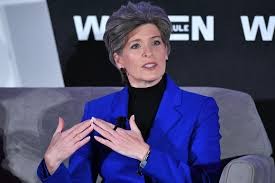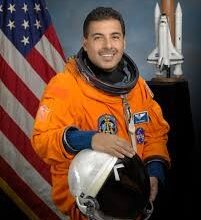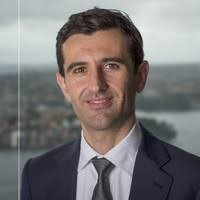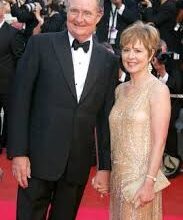Jim Davis: The Visionary Creator Who Changed Comic Strips Forever

Introduction to Jim Davis
Jim Davis is a name that resonates with millions of readers across the world. Best known as the creator of the iconic comic strip Garfield, Jim Davis transformed everyday humour into a global cultural phenomenon. His work is recognised for its simplicity, relatability, and sharp observation of human habits, all delivered through the lens of a lazy, food-loving cat. Over several decades, Jim Davis has not only shaped modern comic strips but also built one of the most successful character brands in entertainment history.
This article explores the life, career, creative philosophy, and lasting impact of Jim Davis, highlighting how his vision continues to influence popular culture today.
Early Life and Background of Jim Davis
Childhood and Early Influences
Jim Davis was born and raised in the American Midwest, an environment that played a significant role in shaping his artistic outlook. Growing up on a farm, he was surrounded by animals from an early age, which sparked his lifelong fascination with animal behaviour. This upbringing later became a key influence in his creative work, particularly in his portrayal of animal characters with human personalities.
As a child, Jim Davis developed an interest in drawing and storytelling. He spent countless hours sketching cartoons and studying comic strips in newspapers. These early experiences laid the foundation for his future career as a cartoonist.
Education and Artistic Development
Jim Davis pursued formal education in art, where he refined his skills in illustration and visual storytelling. During this time, he studied the structure of successful comic strips and learned how humour could be communicated effectively through minimal dialogue and expressive characters. His education helped him develop a disciplined approach to creativity, combining artistic talent with strategic thinking.
The Early Career of Jim Davis
First Steps into Cartooning
Before achieving worldwide fame, Jim Davis worked on several lesser-known comic projects. These early strips allowed him to experiment with characters, pacing, and comedic timing. While they did not achieve major success, they were crucial in helping him understand what resonated with audiences.
Jim Davis also gained experience by working alongside established cartoonists, learning the practical realities of meeting deadlines, maintaining consistency, and appealing to a broad readership.
Understanding Audience Appeal
One of Jim Davis’s greatest strengths was his ability to analyse what readers wanted. He noticed that highly complex or intellectual humour often limited audience reach. Instead, he focused on universal themes such as food, laziness, work frustrations, and everyday relationships. This insight became central to his later success.
The Birth of Garfield
Concept and Creation
The creation of Garfield marked a turning point in Jim Davis’s career. He wanted to design a character that would stand out in newspapers and appeal to a wide demographic. Cats were underrepresented in comic strips at the time, and Jim Davis saw an opportunity.
Garfield was deliberately designed to be expressive, opinionated, and deeply relatable. Unlike idealised characters, Garfield embodied flaws that readers recognised in themselves, such as procrastination, sarcasm, and indulgence.
Supporting Characters and World-Building
While Garfield became the star, Jim Davis understood the importance of a strong supporting cast. Characters such as Jon Arbuckle and Odie provided contrast and balance, enhancing the humour and emotional depth of the strip. Jim Davis carefully crafted these relationships to ensure long-term storytelling potential.
The Rise to Global Success
Newspaper Syndication and Popularity
Once Garfield entered newspaper syndication, its popularity grew rapidly. Readers across different cultures connected with the strip’s simple humour and visual clarity. Jim Davis’s decision to keep dialogue concise made the strip accessible even to those who did not speak English fluently.
This widespread appeal allowed Garfield to expand internationally, turning Jim Davis into one of the most recognised cartoonists in the world.
Merchandising and Media Expansion
Jim Davis was also notable for his business acumen. He recognised early on that Garfield could extend beyond newspapers into merchandise, television, and film. Plush toys, books, animated series, and feature films followed, each reinforcing the brand’s visibility.
Rather than diluting the character, Jim Davis ensured that all adaptations remained faithful to Garfield’s personality, preserving the essence that fans loved.
Creative Style and Philosophy of Jim Davis
Simplicity as a Strength
Jim Davis is often praised for his clean, uncluttered art style. He believed that a comic strip should be instantly readable, even at a glance. This philosophy guided his visual choices, from character design to panel layout.
By avoiding unnecessary complexity, Jim Davis made his work approachable and timeless.
Observational Humour
At the heart of Jim Davis’s writing is observational humour. He drew inspiration from ordinary life, turning mundane situations into moments of comedy. Garfield’s dislike of Mondays, for example, reflects a universal sentiment that resonates across cultures and generations.
Consistency and Discipline
Another hallmark of Jim Davis’s success is his consistency. Producing content daily for decades requires immense discipline. Jim Davis approached cartooning as both an art and a profession, maintaining high standards while adapting subtly to changing audience tastes.
Jim Davis as a Cultural Icon
Influence on Comic Strips
Jim Davis redefined what a successful comic strip could be. His work demonstrated that mass appeal and artistic integrity could coexist. Many modern cartoonists cite Jim Davis as an influence, particularly in terms of character branding and audience engagement.
Impact on Popular Culture
Beyond newspapers, Garfield became a symbol of modern humour. Quotes, images, and references to Jim Davis’s creation are deeply embedded in popular culture. The character’s personality traits have become shorthand for certain attitudes, reflecting the depth of Jim Davis’s influence.
Challenges and Criticism
Artistic Critiques
Like many widely popular creators, Jim Davis has faced criticism from some who argue that his humour is too simple or commercial. However, Jim Davis has consistently defended his approach, emphasising accessibility and reader enjoyment over niche appeal.
Adapting to a Changing Media Landscape
As media consumption shifted towards digital platforms, Jim Davis adapted his work to remain relevant. Online distribution and social media exposure introduced Garfield to new generations, proving the enduring strength of the original concept.
Legacy and Lasting Influence of Jim Davis
Enduring Popularity
Decades after its debut, Garfield remains widely recognised and beloved. This longevity is a testament to Jim Davis’s understanding of human nature and his ability to create characters that transcend time.
Lessons from Jim Davis’s Career
Jim Davis’s journey offers valuable lessons for creatives in any field. His success highlights the importance of knowing your audience, staying consistent, and balancing creativity with practical thinking.
Conclusion
Jim Davis is far more than the creator of a famous comic strip. He is a visionary who understood how humour, simplicity, and relatability could combine to create something truly universal. Through Garfield, Jim Davis captured the quirks of everyday life and turned them into a global phenomenon.
His work continues to entertain, influence, and inspire, proving that well-observed humour and strong character design never go out of style. Jim Davis’s legacy stands as a powerful example of how creative passion, when paired with discipline and insight, can leave a lasting mark on the world.



